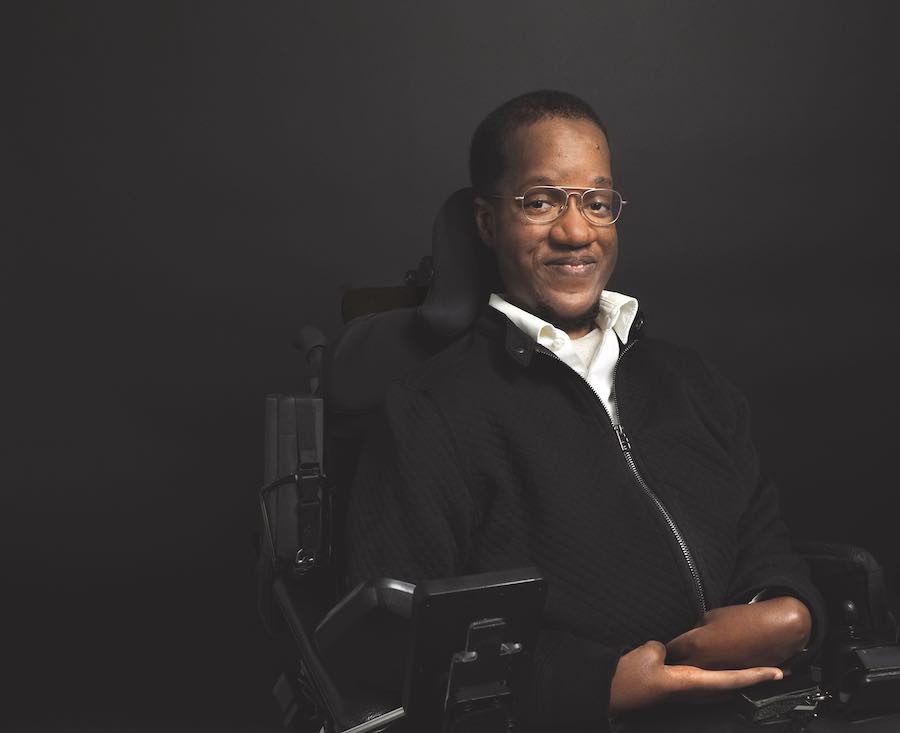Gift Tshuma wants to make musical instruments accessible for everyone. After moving to Montreal from Zimbabwe as a young adult, Tshuma, who lives with a disability, longed to combine his two passions of music and activism. So, in 2019, he co-founded Blurring the Boundaries, an organization that creates digital instruments for people with disabilities. The project consults people with varying disabilities through every step of the development process. Over the last four years, it has worked with like-minded groups across Canada and the United Kingdom.
Origins
It was inevitable that I would love music. I was surrounded by siblings who were musicians and singers. We were also brought up in a Black church where gospel music was very prominent. I think the moment I started writing my own songs was when I realized I wanted to do this seriously. I started a gospel group called United Tribulation Choir with my brother. I directed that group for about 12 years.
Challenges
Music technology is not designed with people with disabilities in mind. A composition can require the use of a MIDI keyboard, for instance, and one can have difficulties pressing the keys. Prominent venues are not always wheelchair accessible either. That makes it difficult for artists with disabilities to become visible within the music scene — you can only perform in areas with wheelchair access or do performances online.
Technology
Our software can replicate any type of instrument — piano, drums, whatever you want. The way the software is operated is its distinguishing feature. Some of our instruments are operated by light sensors. Others are operated using a webcam. All of our instruments are browser-based too, so they can be accessed through any device as long as you have an internet connection. If someone is only able to play an instrument digitally, it will be web-based.
Innovation
We decided that our digital instruments must be open source. Meaning, even though we’ve consulted with people with varying disabilities, anyone who knows coding can adapt the tools to fit the specific needs of a particular person. We’ve worked with quite a few creators across Canada, and it’s just been incredible to learn what people’s needs are — and what can make our product better. My hope is that as we expand, the concept of accessibility is something that inventors and technologists gain a greater awareness of.
More on Broadview:
- Don’t think you can afford art? Montreal collective The MRKT is changing that
- Photographer shows that women of colour skateboard too
- Ukulele church brings a whole new meaning to joyful worship
Advocacy
There’s no greater joy than seeing someone express themselves in ways they didn’t think were possible. Everyone deserves that ability without experiencing any barriers. For that to happen, you’ve got to create something from the ground up. At the same time, as much as you become an expert in an issue, you can never know it all. There are always going to be things you need to learn from allies and fellow activists. The deeper I dig into certain issues, the less I know. That helps me to stay grounded and remain curious.
***
Michael Grace-Dacosta is a writer living in Toronto.
This article first appeared in Broadview’s September 2023 issue with the title “Gift Tshuma: Musician.”














